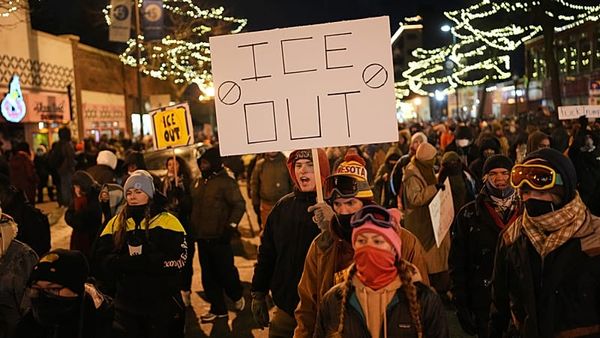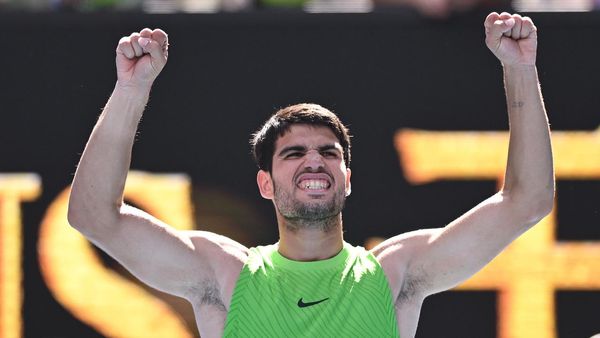
Despite positioning itself as the guardian of the landmark climate agreement signed in Paris in 2015, France is sending mixed signals when it comes to fulfilling the EU’s ambitious targets for cutting greenhouse gas emissions. The 27 members are expected to agree on figures at a meeting next week.
The European Union has committed to achieving carbon neutrality by 2050 and claims to have already reduced emissions by 37 percent compared to 1990, the reference year for its climate targets.
Last year, the European Commission announced its intention to cut greenhouse gas emissions by 90 percent relative to 1990 levels by 2040.
Brussels must now reach agreement on interim targets for the period between 2030 and 2040, with proposals expected to be unveiled on 2 July. However, striking the right balance will prove a significant challenge.
Finding a compromise on this will be an important step ahead of this year’s global Cop30 climate conference in Belem, Brazil in November.
France falling short of climate targets as emissions dip slows
The gathering comes as average global temperatures in the past two years exceeded the 1.5 degrees Celsius benchmark set under the Paris climate accord a decade ago.
Nations are currently divided between keeping the bloc's ambitious emission targets. Some want to separate the 2035 and 2040 goals, scale them down or have more flexibility to meet them.
Even Brussels has come under pressure to switch focus to boosting European industry confronted by fierce competition from the United States and China.
Unrealistic goals?
For countries like Poland, the Czech Republic, Hungary and Italy, the 90 percent target of cutting emissions by 2040 is unrealistic.
Denmark, which will take over the rotating presidency of the Council of the EU from Poland next week, insists in its program that it will push for a "2035 target derived from the EU’s 2040 target."
But France has warned that Brussels should refrain from setting overly ambitious targets without detailing how to meet them.
Speaking after a one-day EU summit on Thursday evening, Macron said he was "in favour of having these targets by 2040," but warned that "we must give ourselves the means to do so and make them compatible with our competitiveness."
Macron takes stock of France's nuclear projects with focus on energy transition
In his view, this implies validating the concept of "technological neutrality," meaning including renewable energies such as nuclear power, which France favours, in the effort.
Prior to the summit the French Ecological Transition Ministry denied that it wants to decouple the two targets. But five officials speaking under anonymity told Politico website that France has been raising that position behind closed doors.
The 2035 goals, known as nationally determined contributions (NDCs) are required under the Paris Agreement and must be submitted to the United Nations by the end of September.
The Commission has suggested a 55 percent emissions reduction in 2030 and 72.5 per cent in 2035, which would be a midpoint between the 2030 and 2040 targets.
But France appears to be pushing for a lower target for 2035 in line with the longer-term objectives of achieving climate neutrality by 2050.
Democratic debate
Prior to the summit, one of Macron’s advisors told journalists that another important aspect is "the fight against carbon leakage", referring to the situation where climate rules in one region result in lower emissions there but a spike elsewhere, as companies seek out less stringent jurisdiction.
Macron has also rejected the adoption of a target "on the sly" with only a short technical debate. "It must be a democratic debate among the 27 [members]," he argued.
He also insisted that the EU should not impose itself on setting this target before Cop30, as it is not an international obligation. "If it's going to take longer, let's take more time to do it right!" he said.
'Building trust' key to solving climate crisis, Cop30 president tells RFI
The commission is considering greater flexibility in its calculations for 2040, including through the purchase of carbon credits on international markets.
But the move is opposed by green groups that say it would allow the EU to outsource part of its climate effort, and worry about a lowering of the bloc's mid-term goals.
"President Macron risks derailing Europe's climate ambition," Sven Harmeling, head of climate at Climate Action Network Europe (CAN), an environmental organisation told French news agency AFP.
Setbacks at home
French branch of the CAN network, Réseau Action Climat criticised French politicians in particular for not defending climate change goals closer to home.
It accused MPs of procrastinating and even contributing to setbacks – with 43 measures suspended in the space of the last six months. These include suspending subsidies for climate-related home renovation and electric vehicles and allowing industrial farming methods.
According to surveys the NGO carried out, these choices are at odds with the expectations of the French public.
For example, 84 percent of French people are in favour of adopting measures aimed at limiting the presence of highly industrialised farms and 84 percent have a positive image of renewable energies, a figure that rises to 94 percent among those living nearest the installations.
(with AFP, newswires)







